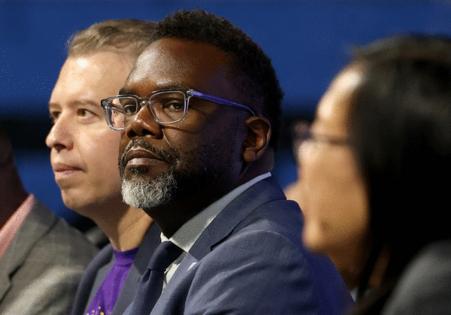Editorial: Lessons from Detroit for Chicago Public Schools and the Chicago Teachers Union
Published in Op Eds
With the Chicago Teachers Union making unrealistic contract demands, Chicago Mayor Brandon Johnson taking its side and Gov. JB Pritzker eyeing a potential political train wreck, you might have thought things couldn’t get much worse for the Chicago Public Schools.
Then the school board announced it would resign en masse.
That’s as bad as it gets, right? Unfortunately, no.
We already wrote about Evanston/Skokie District 65 in the northern suburbs, which faces mass layoffs, school closures and other cutbacks after overspending left it unable to pay its bills. But that school board at least isn’t shirking its duties. It does not want to lose local control.
In Texas, the state has taken over the city of Houston’s failing school district, imposing dictatorial changes that have prompted students and educators alike to flee. And then consider the mother of all modern disasters to befall big metropolitan school districts: Detroit.
The once-great Detroit public school system suffered for decades from de-industrialization, depopulation and mismanagement right up through the 1990s. What happened next made everything worse — and should serve as a warning to the CTU as it ruthlessly exploits its hand-picked mayor to squeeze money out of a strapped CPS.
Michigan adopted a series of laws to allow ever more heavy-handed takeovers of school districts that were fiscally incompetent and failing to educate students. In Detroit, state-appointed officials started taking over in 1999, suspending the locally elected school board and imposing a new chief executive. Parents lost confidence and students left in droves.
After a few years again under an elected school board, which ran up a huge budget deficit, the state declared a financial crisis amid the Great Recession of 2008-09 and appointed a new boss who made deep cuts but never got rid of the deficits. For years, the pattern continued of state officials making cuts that diminished the schools but failed to fully shore up the finances.
One of the biggest failures of the emergency managers was letting shuttered schools and other district buildings fall into disrepair. The bill for finally addressing that neglected real estate clocked in at an estimated $500 million. Chicago needs to consolidate underused schools as well and could learn from Detroit’s mistake in handling the process, but its now-lame-duck school board has postponed needed action to appease the mayor and the CTU.
The emergency managers in Detroit also converted short-term debt into long-term debt to postpone the day of reckoning, kicking the can down the road while paying tens of millions in additional interest costs. Think of that when you hear Johnson and his former employers at CTU pushing for a short-term, payday-style loan to cover salary increases and pension payments.
A comprehensive report on the 15 years when state-appointed officials ran the Detroit schools pronounced the takeover “a costly mistake,” and it’s hard to argue. The sought-after turnaround didn’t happen under their watch, and the emergency managers left behind a depleted shell of a district serving a fraction of the students it did when they started.
Could an elected school board have done better? Maybe, but it didn’t when it had the chance. As for declaring bankruptcy, education policy experts view that option, available in some states for school districts, as an even worse strategy than state takeovers, because judges are equipped to fix financial problems but not educational ones.
Comparing Chicago to a basket case such as Detroit during the period of state intervention might seem like a stretch, but it isn’t. As in the Detroit of that era, CPS finances aren’t sustainable, and Illinois keeps squabbling over who calls the shots. In 2016, then-Gov. Bruce Rauner proposed a state takeover or bankruptcy of CPS. Like most of his ideas, that one went nowhere, but his assessment of the district’s financial mess wasn’t wrong. After Rauner departed, the state proceeded to lay the groundwork for replacing mayoral control with an elected school board, weakly choosing to do so in two half-steps, the first coming with the Nov. 5 election.
Meantime, the CTU’s most militant faction has stepped into the void, pushing its patsy into City Hall and pressuring Pritzker to hand over additional megabucks from state taxpayers with no strings attached. Pritzker appears to recognize his political future depends on saying no to that myopic demand.
Deep in debt, with uncertain leadership, a money hungry union at its throat and the huge windfall of pandemic relief already spent, it isn’t difficult to see the potential for a Detroit-like failure on Chicago’s horizon.
In recent years, the Detroit Public Schools Community District emerged from its long nightmare to make sensible educational decisions, deliver balanced budgets and pay off debt on time without the trickery of the past. Let’s hope CPS can absorb the Motor City’s hard lessons without requiring the trauma of a state takeover or municipal bankruptcy.
The parents and students of Chicago deserve better than a school system at risk of being run into the ground, Detroit-style.
_____
©2024 Chicago Tribune. Visit chicagotribune.com. Distributed by Tribune Content Agency, LLC.




























































Comments